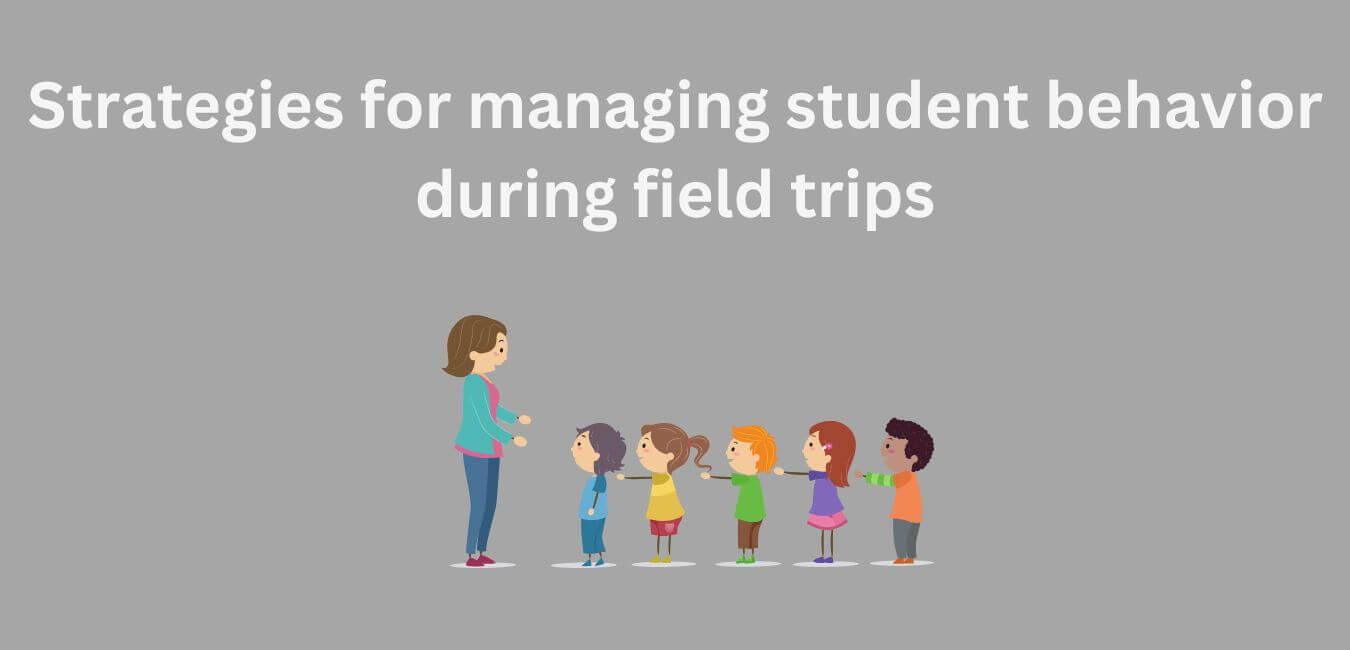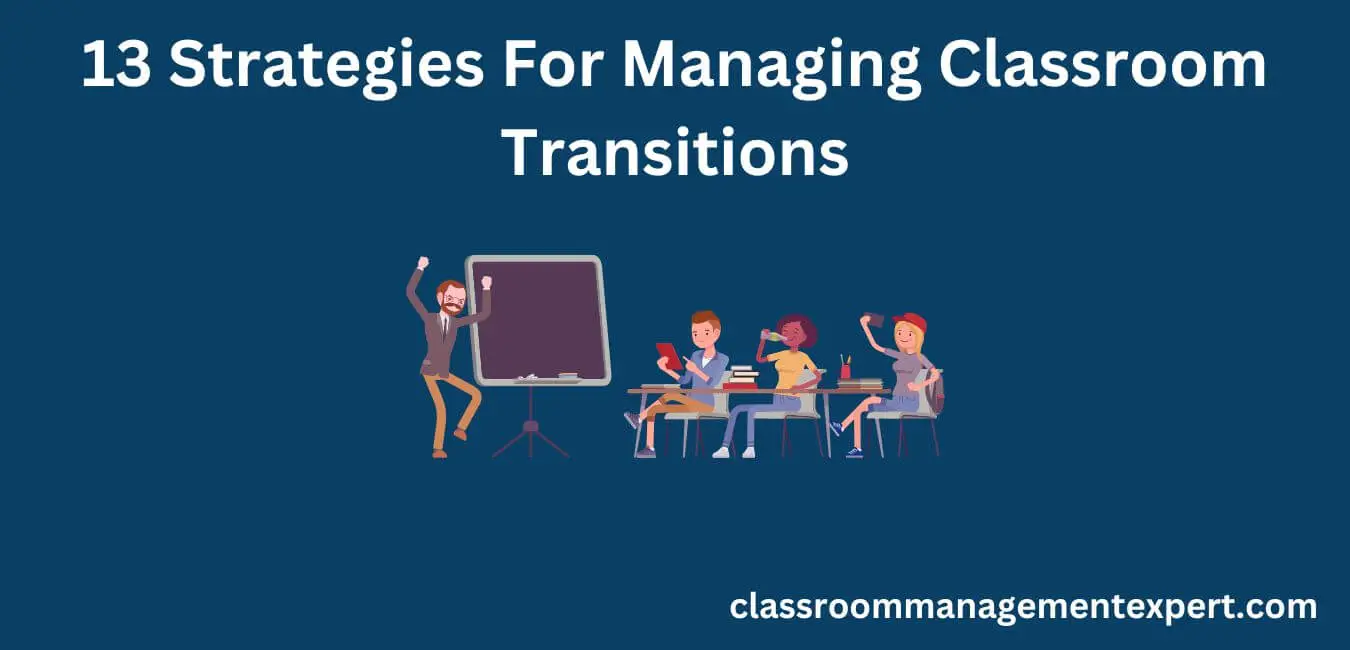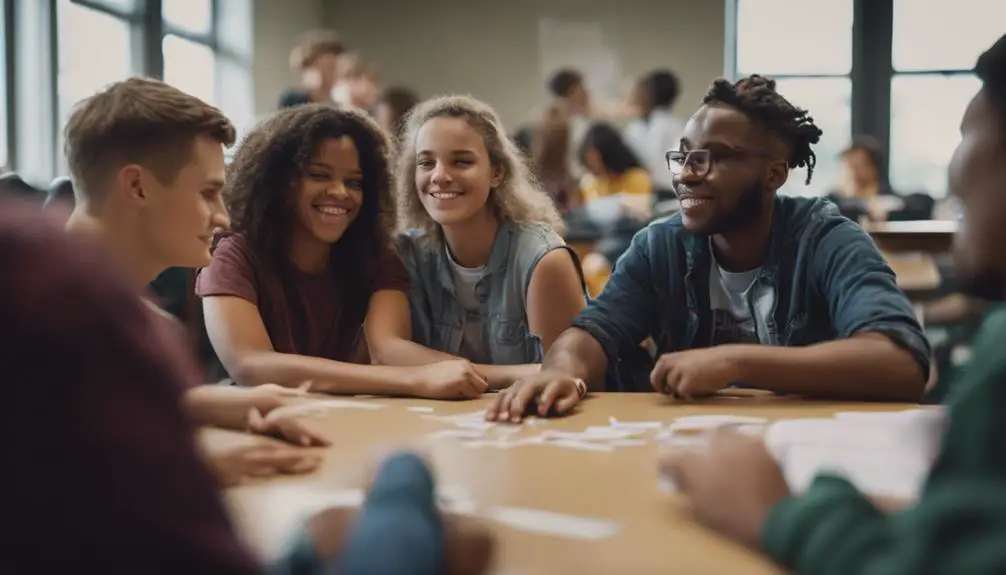Field trips are an exciting opportunity for students to get out of the classroom and experience new things.
However, managing student behavior during field trips can be challenging for even the most experienced teachers. From wandering off to squabbles with classmates, there is a multitude of potential behavioral issues that can arise.
To help educators navigate these situations, we’ve compiled 15 strategies for managing student behavior during field trips. Whether you’re a seasoned veteran or a first-time chaperone, these tips will help you keep your students on track and on task while exploring the world outside the classroom.
Techniques to Manage Students’ Behavior During a Field Trip
The following are some tips you can use to manage the behavior of your students during a field trip:
1. Set clear expectations: Before the trip, clearly explain your expectations for behavior and discuss consequences for misbehavior.
It’s important to set clear expectations for behavior before embarking on the field trip.
Before leaving the classroom or school, take the time to clearly explain what you expect from your students. Discuss the consequences of misbehavior and make sure your students know what behaviors will not be tolerated.
This will give your students a clear understanding of what is expected of them and how they should behave throughout the trip. It’s also a good idea to provide your students with a checklist of behaviors to follow during the trip.
This way, they can refer to it if they need a reminder. By setting clear expectations, you’ll create a positive environment for learning and ensure a successful field trip for everyone involved.
2. Communicate with parents: Make sure parents are aware of the expectations and consequences of misbehavior.
As an educator, you know that communication is key when it comes to managing student behavior during a field trip. That’s why it’s important to make sure parents are aware of your expectations and consequences for misbehavior before the trip begins.
By communicating clearly with parents, you can ensure that your expectations for student behavior are reinforced at home and that parents are on board with consequences for misbehavior. This partnership between you and your parents is crucial for making sure your students are accountable for their actions and that they have a safe and enjoyable experience on the field trip.
Make sure that you have clear communication channels in place, such as email or a class website, to keep parents informed throughout the trip if any behavior issues arise. By working together, you’ll be able to create a positive and productive learning environment for your students, even outside of the classroom.
3. Assign chaperones: Assign responsible chaperones to keep an eye on students and ensure they are following expectations.
Now that you have set clear expectations and communicated them to parents, it’s time to assign chaperones for the field trip. Make sure to choose responsible chaperones who are willing to keep an eye on the students and ensure they are following expectations.
It’s important to have multiple chaperones so that each can focus on a specific group of students. Assign chaperones the duties of monitoring student behavior, taking attendance, handing out snacks, and enforcing rules.
Explain the behavior expectations to the chaperones and ask them to report any violations to you immediately. Remember, chaperones play a crucial role in ensuring a safe and educational experience for students, so choose them wisely and communicate effectively with them.
4. Buddy system: Implement a buddy system among students so they can keep an eye on each other.
Another effective strategy for managing student behavior during field trips is to implement a buddy system among students. This allows them to keep an eye on each other and support one another throughout the trip.
Assign students to a partner and encourage them to stick with their buddy throughout the day. This will not only help prevent misbehavior but also fosters socialization and teamwork among students.
Remind your students to be responsible and look out for their buddies, and be sure to check in with them periodically to make sure everything is going smoothly. By implementing a buddy system, you can create a positive and supportive environment that promotes good behavior and ensures a successful field trip experience.
5. Give clear instructions: Be sure to give clear instructions on how to behave at different locations and activities.
As you plan for your upcoming field trip, it’s important to remember that giving clear instructions is key to managing your students’ behavior.
Before heading out, make sure to discuss with your students what your expectations are for their behavior and how they should behave in different locations and activities. This will help them understand what is expected of them and will make sure that everyone is on the same page. In addition, assigning chaperones and implementing a buddy system can help ensure that students are following expectations and being responsible.
Remember to be consistent with your expectations and consequences, and be prepared for any potential behaviors. By following these strategies, you can ensure a successful and enjoyable field trip for everyone involved.
6. Dress appropriately: Dress in comfortable clothes and shoes that will allow you to move around easily and keep up with the group.
Now that you have set clear expectations, assigned chaperones, and established your buddy system, it’s important to consider your attire for the field trip. Dressing in comfortable clothes and shoes that will allow you to move around easily and keep up with the group is crucial. Remember, field trips can be physically demanding, and you don’t want to be preoccupied with uncomfortable clothing or blisters on your feet.
Layering your clothing is also important to ensure you are prepared for changes in temperature throughout the day. By dressing appropriately, you’ll not only feel more comfortable, but you’ll be able to focus on supervising your students and ensuring a successful field trip.
7. Positive reinforcement: Use positive reinforcement to encourage good behavior, such as praise and rewards.
Now that you’ve set clear expectations and assigned chaperones for your field trip, it’s important to keep your students engaged and motivated throughout the day. One way to do this is through positive reinforcement.
Praising and rewarding good behavior encourages students to continue making positive choices. You can offer small rewards, such as stickers or extra free time, to students who show exemplary behavior.
Additionally, don’t forget the power of verbal reinforcement. Telling your students that they are doing a great job can go a long way in boosting their confidence and encouraging them to keep up the good work.
Remember to be consistent with your positive reinforcement, and make sure to also redirect misbehavior in a calm and positive way. With encouragement and motivation, your students will have a successful and enjoyable field trip.
8. Consistency: Be consistent with your expectations and consequences to ensure students know what to expect.
When it comes to managing student behavior during field trips, consistency is key. By being consistent with your expectations and consequences, students will know what to expect and be more likely to follow the rules. Make sure you communicate these expectations clearly before the trip and be sure to follow through with consequences if necessary.
Remember also to reward good behavior with praise and positive reinforcement. By staying consistent, you can create a safe and enjoyable learning experience for all students on the trip.
So, keep up the great work, and continue to set clear expectations and consequences for your students.
9. Be prepared: Make sure you have all necessary supplies and materials on hand, and be prepared for any potential behaviors.
To have a successful field trip, it is essential to be prepared. Make sure you have all necessary supplies and materials on hand, such as first aid kits, snacks, and water bottles.
You should also consider any potential behaviors that may arise and plan accordingly. For example, if you are visiting a crowded museum, make sure you have the plan to keep track of your students and prevent any wandering off.
By being prepared, you can ensure that your trip goes smoothly and everyone has a fun and educational experience. Remember, your goal is to provide your students with a safe and enjoyable outing, so don’t hesitate to double-check your preparations before the big day.
10. Group dynamics: Avoid grouping together students who tend to have problems when together.
When planning a field trip, it’s important to consider the dynamic of the student group. By avoiding grouping together students who tend to have problems when together, you can create a more positive and productive experience for everyone.
Instead, assign chaperones with good management skills to these students and consider grouping students by subject knowledge or interest. Remember to communicate clearly with both students and parents about behavior expectations and consequences, and be prepared for any potential behaviors. By being mindful of group dynamics, you can help ensure a successful and enjoyable field trip for all involved.
11. Redirect misbehavior: Use redirection techniques to redirect misbehavior and keep students on task.
Be prepared to redirect misbehavior during your field trip. Use redirection techniques to help students stay on task and avoid disruptive behavior.
For example, if a student is talking out of turn, you could redirect them by asking them a question related to the activity or task at hand. Using humor is another effective way to diffuse tense situations and steer students back on track.
Remember to stay positive and focus on the fun and educational aspects of the field trip. Keep an eye on all of your students and encourage them to communicate with you and their chaperones if they have any concerns or questions.
By being proactive and prepared to redirect misbehavior, you can ensure a successful and enjoyable field trip for everyone.
12. Use humor: Use humor to diffuse tense situations and lighten the mood.
Now let’s talk about using humor as a strategy to manage student behavior during field trips. Humor can be a powerful tool to diffuse tense situations and lighten the mood.
It can also be a great way to redirect misbehavior and keep students on task. But remember, just like in the classroom, humor should never be directed at a student.
Use it in a lighthearted way to keep the group engaged and motivated. It’s important to balance the fun with clear expectations and consequences for misbehavior.
By using humor in a positive way, you can help create a more enjoyable environment for students on the field trip while still maintaining a structured and safe experience.
13. Encourage communication: Encourage students to communicate with you and their chaperones if they have any concerns or questions.
It’s important to encourage communication between you, your chaperones, and your students. Let your students know that they can come to you or their chaperones if they have any concerns or questions.
This will help prevent any potential misbehavior or misunderstandings. By encouraging open communication, you are also building trust with your students and creating a positive learning environment.
Remember to stay positive and approachable, so your students feel comfortable coming to you if they need help. Keep in mind that communication should go both ways – make sure you are also communicating with your students and chaperones throughout the trip to keep everyone informed and engaged.
14. Stay alert: Stay alert and keep an eye on your students at all times.
When you’re on a field trip, it’s important to always keep a watchful eye on your students. By staying alert, you can quickly address any behavior issues that arise, ensuring the safety and well-being of everyone on the trip.
As we discussed earlier, assigning responsible chaperones and implementing a buddy system are great ways to help keep an eye on students. But ultimately, it’s up to you to stay focused and attentive.
Make sure you know where all of your students are at all times, and be ready to step in if anyone starts to stray from the expectations you’ve set. Remember, by staying alert, you can ensure a successful and enjoyable field trip for all.
15. Stay positive: Keep a positive attitude and focus on the fun and educational aspects of the field trip.
As you plan your next field trip, remember to stay positive and focus on the fun and educational aspects of the trip. Keep a smile on your face and a cheerful attitude, even when things don’t go exactly as planned.
Your students will take their cues from you, so make sure you set a positive tone for the day. Encourage your students to engage with the exhibits and ask questions, and be sure to point out interesting facts or fun details along the way.
Your enthusiasm and positivity will make the experience more enjoyable for everyone and will help ensure a successful and memorable field trip. Keep in mind the previous strategies for managing student behavior, and even if there are hiccups along the way, stay focused on the positive aspects of the trip.
You and your students will have a great time if you approach the field trip with a positive attitude.
Conclusion
A successful field trip requires careful planning and preparation. By setting clear expectations, assigning responsible chaperones, implementing a buddy system, encouraging communication, staying alert, and staying positive, you can ensure a safe and enjoyable experience for everyone. Managing student behavior on a field trip can be challenging, but with the right strategies and attitude, you can ensure a successful and memorable outing for your students.

















